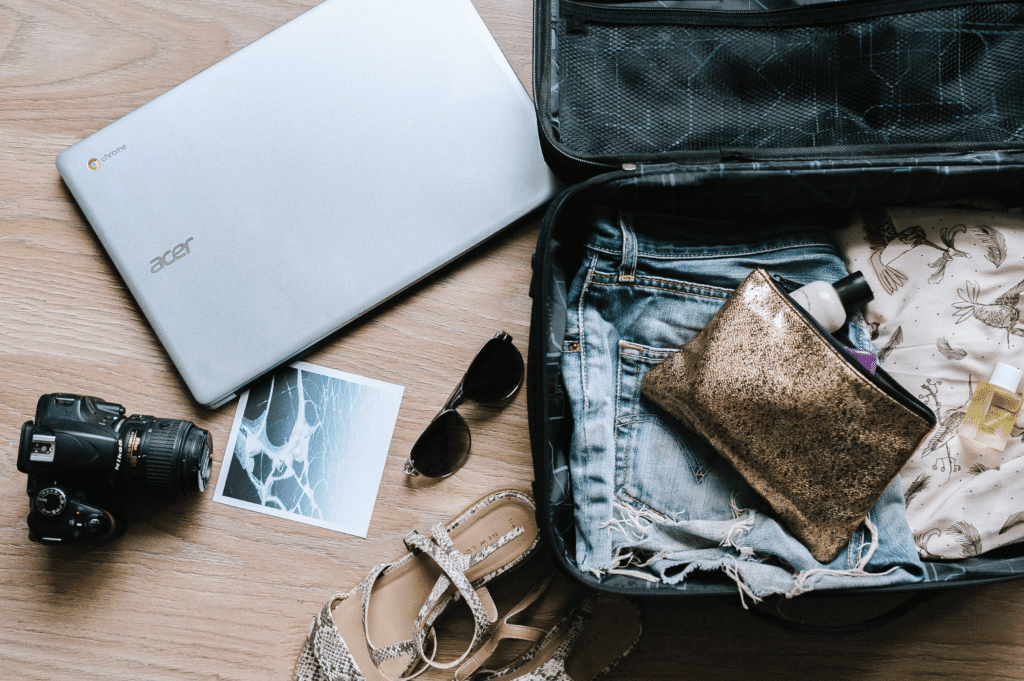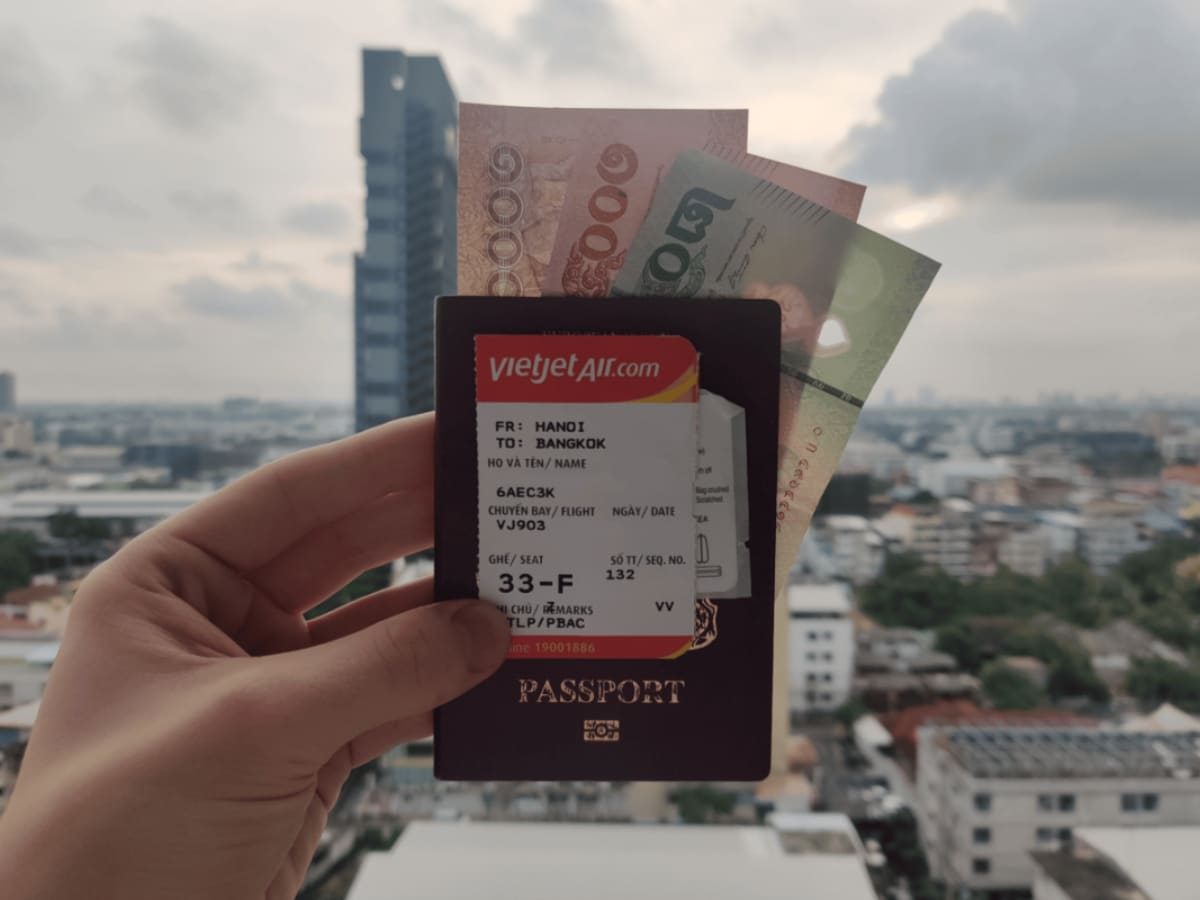Before you travel: 3 golden travel tips
Saving money begins even before you take a step outside your front door! Good preparation can help you to familiarise yourself with the costs to come, as well as help you to save money on initial travel expenses.

1) Research when the best time to go is
We’ll start with a not-so-secret industry secret, but one that is still often overlooked, much to a traveller’s peril – deciding when to go on holiday. There are a few factors that come into play for this, so ask yourself the following questions:
- Who are you going with? (Family, young kids, or just adults)
- Where are you going? (Warmer countries often receive more tourists in the European wintertime, for example)
- What time of the year is it? (Remind yourself of school holiday dates to avoid the rush where you can)
School holidays can often catch out unwary travellers, especially those who are looking for a quiet retreat. We recommend familiarising yourself with these dates and booking outside of them wherever possible.
As we’ve mentioned above, warmer countries such as Cape Verde before more popular in the European winter, as tourists flock to escape the cold season for a while. You’ll also find that accommodation prices increase in the ‘high season’ (or the busier parts of the year), so you can save money by visiting during the ‘low season’ instead.
2) Look for a travel-friendly credit/debit card
Whether or not you can use your card in your destination country does obviously depend on the infrastructure available there, however many developed countries now opt for a contactless system (debit/credit card). In this case, it can be easy to whip out your card from back home and start making transactions, without realising you are being charged currency conversion fees as well as other international payment fees.
A dedicated travel card will most likely have 0% foreign transaction fees, and often come with other great perks and sign-up bonuses like free travel insurance or cheaper flights. If you’re a frequent traveller or intend to be in another country for an extended period of time, then a dedicated travel card is a must.
To learn more, we recommend checking out the dedicated post covering travel cards and credit card companies by MoneySavingExpert.
3) Book your flights like a pro
Whether you love or hate booking them, flights are often one of the biggest expenses of the trip, so it pays to do your research when booking them. For longer-term trips, higher airfares can be more justifiable compared to shorter-term ones.
Finding the best flight deals can seem like a chore, but flight comparison apps such as Skyscanner do a fantastic job of giving you an overview of prices throughout a given month, helping you to plan your trip without splashing unnecessary cash.
However, we do still recommend searching across more than one site, including the airline sites themselves, as they may be showcasing seasonal offers and the best deals and tickets for half the price.
Also, some destinations may only be served by a few airlines, which can lead to increased prices. A silver lining here is that these areas often see fewer tourists and the location may well be less crowded. While flights seem expensive, a low cost of living can help to balance this out.
#Tip: If you are not in a rush, it is also a good idea to set up price alerts for flights on your phone, as prices fluctuate quite often.
Before you travel: 7 more money saving travel tips.
Let’s move on to some more money saving tips to help you before you step on that plane. We hope you have a pen and paper ready!

4) Research is key, and fun!
Travel is incredibly exciting – from relaxing beach holidays to mountain excursions, you land in a different environment and are subject to a whole new culture. If you are visiting a country for the first time, then we highly recommend doing a little bit of research on local laws, activities, and how to keep yourself safe there.
Research can help you to avoid any fees you may not be aware of and avoid any fines. On a more upbeat note, you’ll learn about the amazing new culture you’ll be experiencing, as well as what there is to do there.
5) Plan… At least a little
Whether you’re someone who absolutely adores planning every stage of a holiday, or you like to see where the flow takes you, the data points to the fact that planning does generally help holidaymakers save money. Now, we’re not saying to start drawing up a minute-by-minute itinerary, but rather it’s a good idea to plan a few activities to help you to avoid wasting too much time.
At the same time, if you’re all about zero plans – maximum fun, then more power to you! Even if you don’t plan anything concrete, we do recommend you to familiarise yourself with what is available at your destination to help you formulate some ideas.

6) Rent out your own house/house sitting
If you’re planning on a longer-term holiday, then it’s worth considering renting out your own home (websites such as Airbnb or Home Exchange are great for this) or trying out a house swap program. Depending on where you live, where you are visiting, and how high your expenses are, you may end up making more money than you are spending.
House sitting can be a great way to spend some time (often with free accommodation) looking after someone’s home. Whether you are tasked with pet sitting for the owner, or simply keeping the place clean, house sitting can provide a great change of scenery, even if you are not travelling very far.
7) Book early (or very late)
We all know that booking early can help you to save money, but you may not be aware just how much you save by doing so. Data from AsiaOne reveals that booking flights last minute could cost as much as 2.5x more than booking 6 months in advance. It really does pay to think ahead to save money on flights and accommodation.
However, if you are a last-minute kind of person, then there’s still hope! Hotels are known to drop their prices and provide last-minute deals to sell their rooms, which means you can still find a good deal, as long as you’re not too stressed! Websites such as LastMinute and Travelsupermarket can help you out here.
8) Get your travel insurance early
Travel insurance is one of those things that is easy to forget about, especially for shorter holidays. Your mind may be preoccupied with thoughts of chilling out at a beach, however we can’t predict what will happen on holiday – from missing luggage at the airport to potential theft. By getting your travel insurance early, there’s one less thing for you to think about, and you know you’re covered in the event of an emergency.

9) Consider your method of transport
While you may reflexively look at flights when booking your holiday, it’s worth considering other forms of transport which may be cheaper. Coach or train can be a fantastic, alternative form of local transport, especially if you are visiting a relatively close destination city.
You may even consider using a train or coach to travel between locations – this can be a great way to save money and see more of the country you want to visit.
However, if you do choose to fly, make sure to…
10) Weigh your luggage!
I’ve lost count of the number of times I have seen people in front of me at the check-in desk pull out items of clothing in an attempt to get back under the luggage weight limit. Weighing your luggage will not only give you greater peace of mind, but you’ll also know you won’t have to subject yourself to this kind of embarrassment. Plus, you can avoid expensive fees for going over the weight limit.

While you travel: Top 3 travel secrets to keep you in the green.
So, you’ve just landed in your destination country, flush with excitement – that’s great! Now, how do you spend that hard-earned cash wisely, saving money like an expert?

11) Make sure your data roaming is turned off
Another easily forgettable thing to do is to disable your international roaming before you fly, ensuring that you are not blasted with data fees from your provider as soon as you land. In fact, we highly recommend that you avoid using your home SIM while abroad and opt for a local SIM, as these are often relatively inexpensive and can allow you to use data without burning a hole in your wallet.
12) When in Rome, do as the Romans do
The old cliché rings true here, but living and eating like a local can work wonders, not only for helping you save money but also for allowing you to experience local life and culture. From sitting at a local food court and savouring the food, to taking local forms of transport (such as a bus or shared taxi), learning to live like a local can get you out of the all-inclusive bubble, give you a more profound understanding of the culture, and can help you avoid spending unnecessary cash.

13) Try slow travel!
Travelling slower (i.e. spending more time in one given place) has many benefits, too many to list here! Luckily for you, we’ve created a dedicated post covering this topic, and how it can help you to save money and create unforgettable memories.
But to summarise, slow travel (or digital slowmadism for our fellow remote workers), is essentially where you avoid short, multi-destination trips which can not only quickly pile up transportation costs, but can give you a whole new level of understanding of your chosen destination. Hey, it’s also better for the environment too!
While you travel: 7 more money-saving travel hacks
Still looking for more? We don’t blame you. Here are seven more travel tips to help you spend money wisely, wherever you are heading.

14) Buy your toiletries while abroad
Buying shampoo, conditioner and other toiletries while abroad can not only help you cut down on your luggage weight (see point 10!), but can also save you money. Depending on where you are flying, you can often find local brands and deals at the supermarkets on all the toiletries you will need while abroad.
15) Trying cooking at home
One of the most tempting things to do while exploring your chosen destination is to go out to as many restaurants as possible and sample the local cuisine. If you are situated in a touristy area, these trips can be particularly pricy, with the cost of eating out being one of the primary expenses for holidaymakers.
Buying groceries from a local market or supermarket is almost always cheaper than eating out at these pricy restaurants, helping you to save money. What’s more, you can also try to cook local dishes, to really get a good feel for the local cuisine while on a budget.
16) Learn some of the local language
Picking up a few words and phrases of your target language is definitely an understated secret within the travel community. Even a few simple words can get you conversing with local people and street vendors. You may ask them where you can find great local food for cheap – nobody knows the area as well as a local!

17) Use a taxi booking app
Taxis, especially to and from the airport, can be a huge rip-off if you are not properly prepared, or are unaware of the local currency conversion. One great way to circumvent this minefield is to research and download a local taxi booking app – some of these include:
- Uber – Great coverage across the US and Europe
- GrabTaxi – The primary contender for taxi booking in Southeast Asia
- Bolt – Also popular throughout Southeast Asia and Europe
18) Pay in the local currency
‘Would you like to pay in your home currency or local currency?’ It’s a phrase I’m sure many of you will be familiar with from your past holidays. When it comes time to pay the bill, and you opt for using a credit or debit card, we recommend that you choose to pay in the local currency. But why is this?
If you choose to pay with your home currency, you are at the mercy of any conversion fees, as well as most likely a terrible conversion rate. You have much better odds paying in the foreign currency and allowing your bank to make the conversion for you.

19) Keep a daily budget
While not the most glamorous tip on the menu, budgeting is one of the tried and true methods of saving money while on holiday. But rather than nag you about how much money you can save by budgeting, let’s take a practical look at how you can break down your costs:
- Food and drink
- Activities
- Transport
- Internet SIM
- Gifts for family
These are just a few of the popular categories for budgeting while on holiday. A good idea is to assign a certain amount to each category individually, helping you to not overspend and get exactly what you need.
20) Look out for free or low-cost attractions to visit
While many flock to major tourist destinations upon landing at their chosen destination, this is often a recipe for waiting for hours in a queue and paying overpriced entrance fees. Searching for free or low-cost attractions can turn up some real hidden gems, ones which many other tourists may miss out on.
We do admit though that some major tourist attractions definitely are worth it for the experience. In this case, there are a few rules you can stick by to end the day unscathed and with a few good photos tucked away on your phone.





